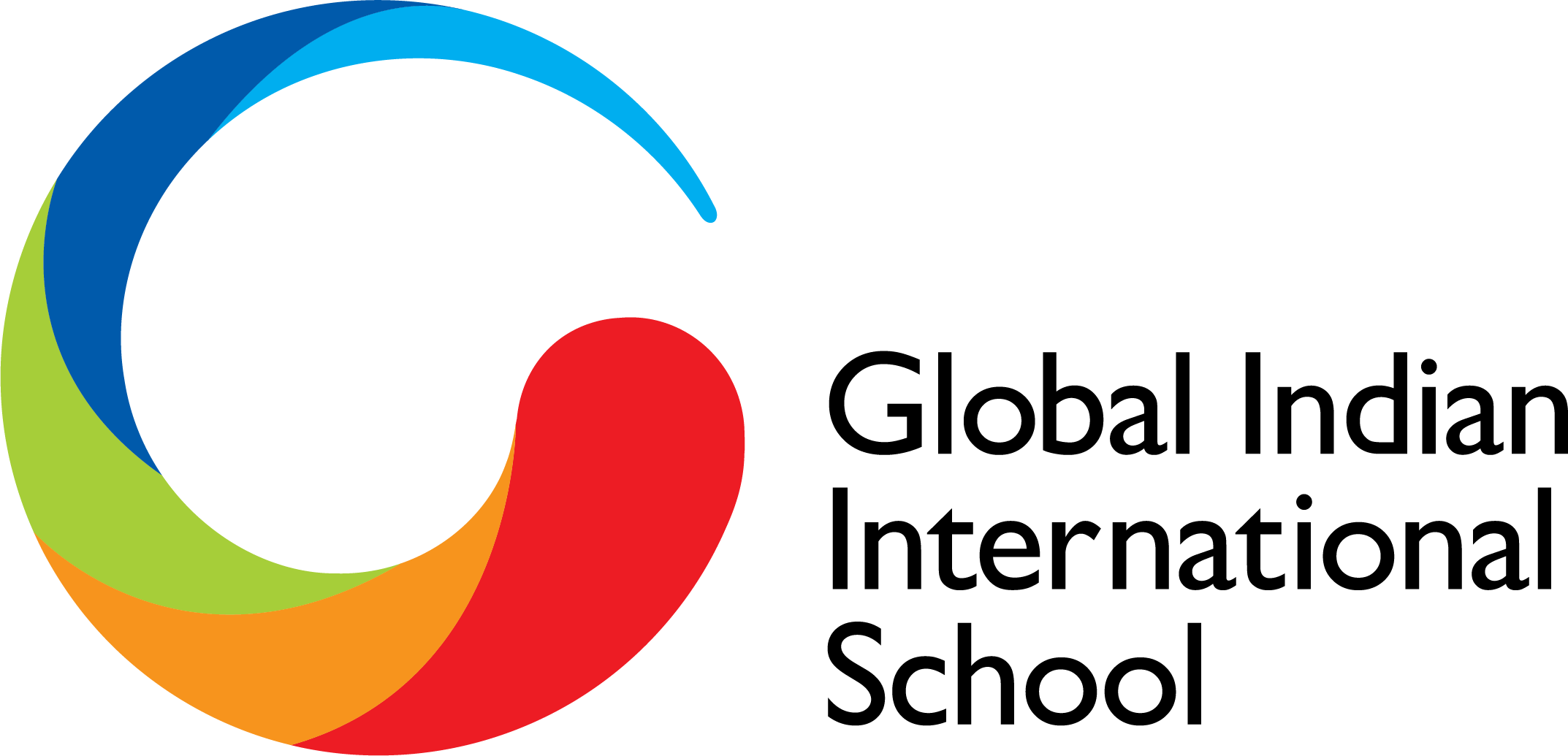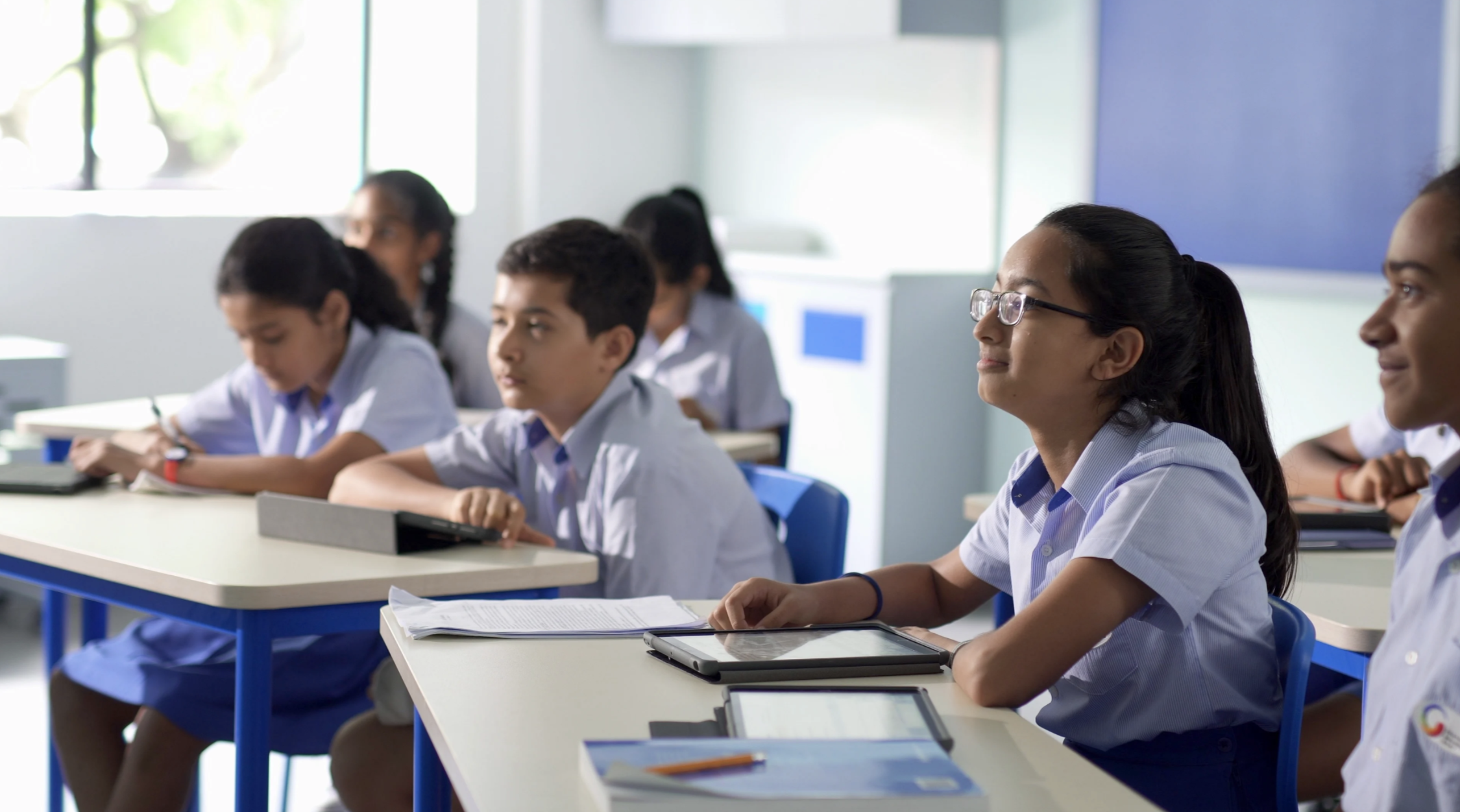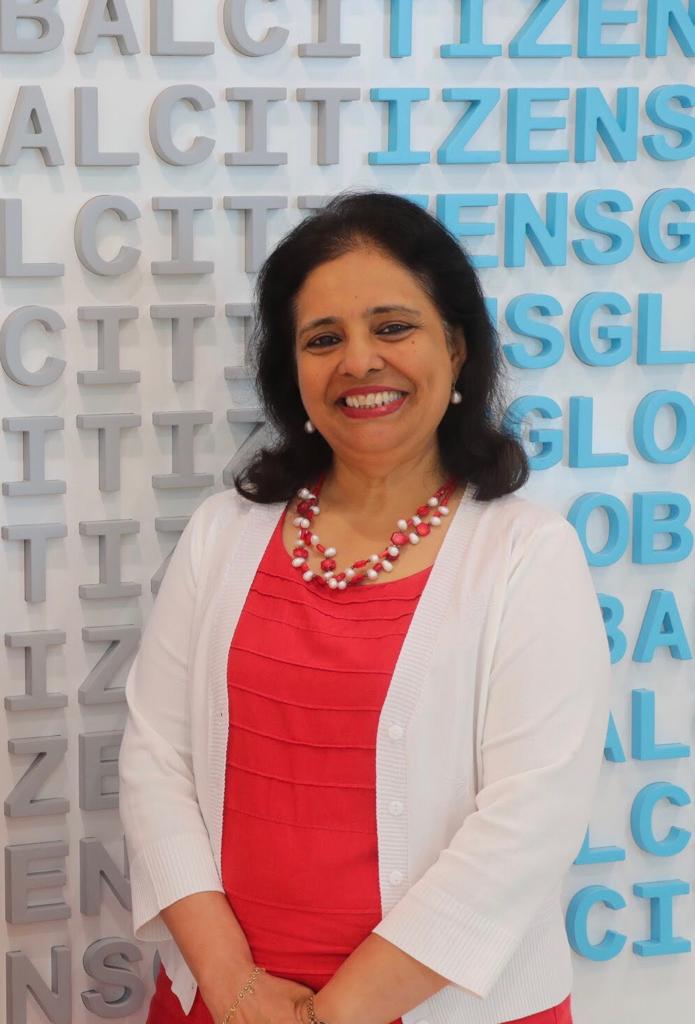At Global Indian International School, we understand that there is no one-size-fits-all solution to promote optimal educational opportunities for our students. We recognise the importance of providing an approach that best meets their needs, learning styles and goals. Toward that end, we offer multiple curricula:
- Global Montessori Plus (GMP) – Kindergarten Programme
- Central Board of Secondary Education (CBSE) – Grade 1 to 12
- International Baccalaureate Primary Years Programme (IB PYP) – Grade 1 to 5
- Cambridge Lower Secondary Programme (CLSP) – Grade 6 to 8
- International General Certificate of Secondary Education (IGCSE) – Grade 9 and 10
- International Baccalaureate Diploma Programme (IBDP) – Grade 11 and 12
Being able to offer multiple frameworks affords students a host of benefits. Here are some of the many advantages of our versatile, flexible approach.
Continuity
One advantage of providing multiple curricula is that students may be able to pursue a course of study with which they're already familiar or that they're likely to opt for later on. For instance, for Indian families who are planning to stay in Singapore for a few years only and then return home, CSBE is usually their curriculum of choice. When they go back to India, students can simply continue with the same framework.
Choice
Similarly, students have more options to choose from when considering which curriculum aligns with their needs and learning style. They might begin their educational journey with the IB PYP, an inquiry-based approach.
As they enter their middle school years, they may decide that the Cambridge Lower Secondary Programme, with its focus on communication and analytical thinking, is the curriculum that will best help them prepare for their later years of secondary school.
Well-grounded in mathematics and science, the CBSE is a popular choice for students who want to pursue further study and careers related to those subjects.
Ability to Switch
Providing students with different curricula gives them the flexibility to switch to a different one if it's a better fit for their needs and interests. Since our teachers are well-versed in the many frameworks we offer, they can provide extra support and guidance in helping students make the decision to switch and navigate the transition as seamlessly as possible.
Furthermore, students can study another curriculum without transferring to another school altogether.
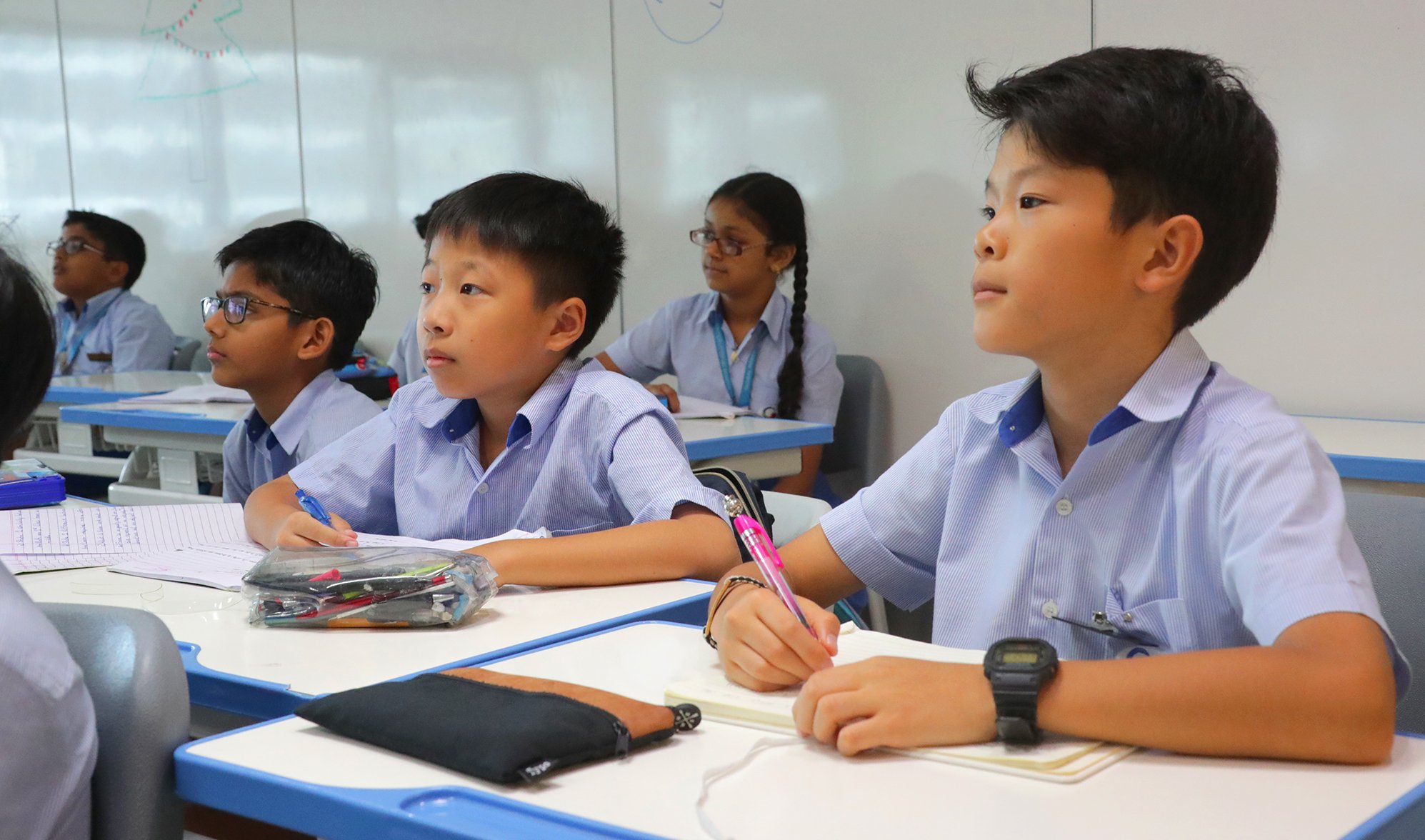
Smooth Transition for Expats
Expatriate students may face additional challenges as they acclimate to another culture in addition to adjusting to a new school. Students of different nationalities can reap the benefits of internationally-recognised curricula, such as CLSP and the IB PYP.
Our multi-faceted approach ensures that expat families can get what they want when it comes to helping their children meet their educational needs and goals.
Transferable Skills
Different curricula at various grade levels enable students to experience more than one approach, thereby getting the "best of both worlds," learning skills that transfer across frameworks. For instance, the GMP provides a nurturing environment that fosters exploration. Thus, during their formative years, students acquire skills that lay the foundation for the inquiry-based model of the PYP.
This programme, which empowers students to take ownership of their learning, equips them with versatile skillsets that they carry over to subsequent phases of their education. Students can enjoy this benefit, no matter which curriculum they pursue, since all of our frameworks are rigorous, engaging and designed to prepare learners for lifelong success.
This puts them ahead of many of their traditionally-educated counterparts as they pursue post-secondary education and careers.
Diverse Contexts
Our varied curricula enable children to apply their learning across a variety of contexts, providing the most well-rounded education possible.
The CLSP includes courses — such as Global Perspectives — that impart 21st-century skills and international-mindedness.
The CBSE is intended to help students balance extracurricular activities and academics, allowing them to cultivate their talents and interests in and out of the typical classroom setting. Students are also introduced to different assessment methods, giving them plenty of opportunities to showcase what they know. Being introduced to different curricula allows students to become more comfortable with various forms of assessment, putting them on track to excel at university and in the workforce.
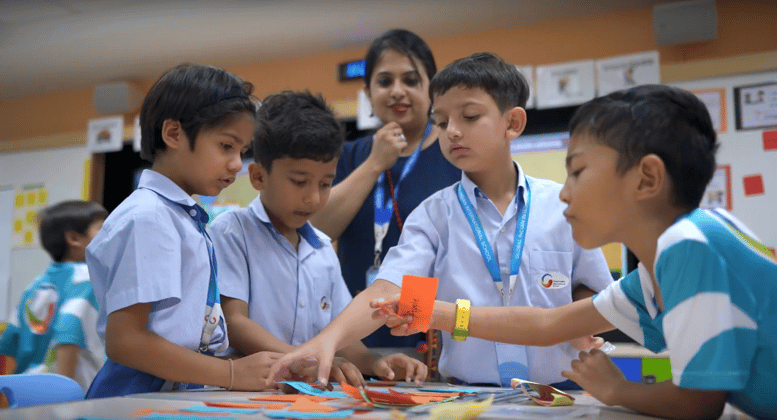
Through multiple curricula at GIIS, our goal is to provide students with an education that nurtures all aspects of their development and prepares them to confidently take on the challenges of living in a diverse society that is constantly in flux. Giving students access to multiple curricula allows them the freedom and flexibility to explore their interests across subject areas, set high goals and find the approach that best addresses their learning needs.
Providing an Indian national framework alongside international curricula meets students where they are and ensures rigorous, an engaging study in a supportive environment, no matter which approach they choose.
Related Articles:
To know more about GIIS SMART Campus and its excellent educational offering, click here.
